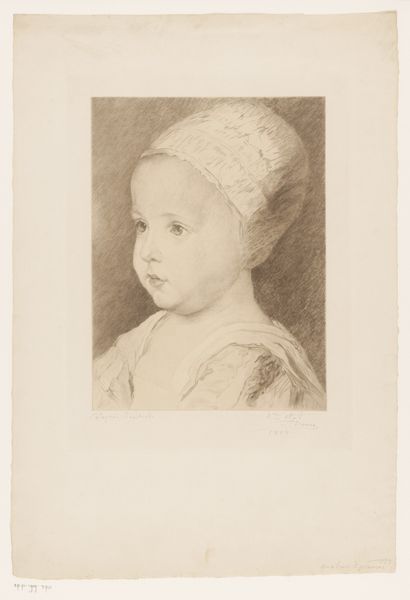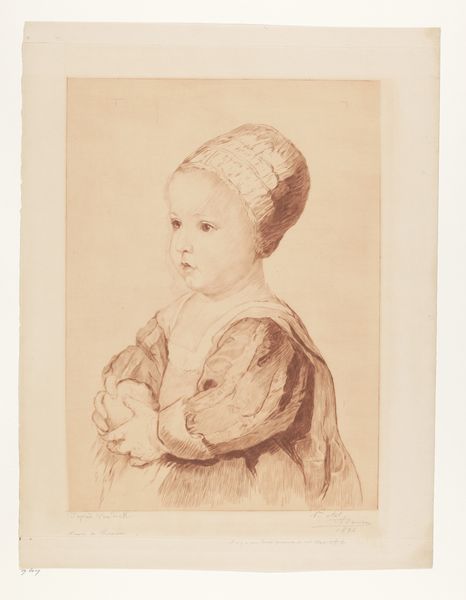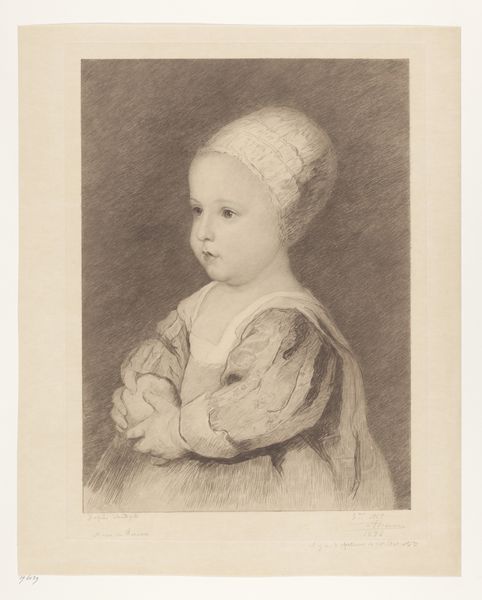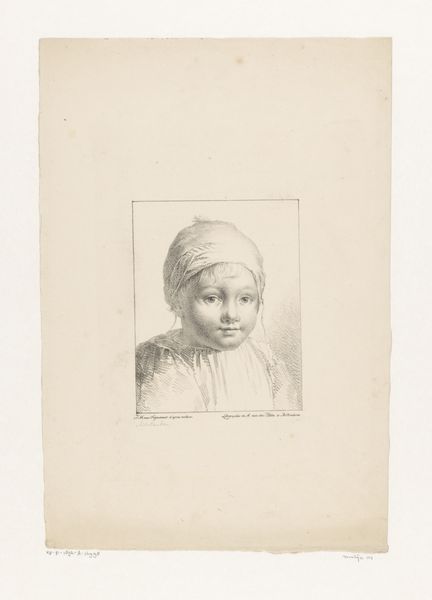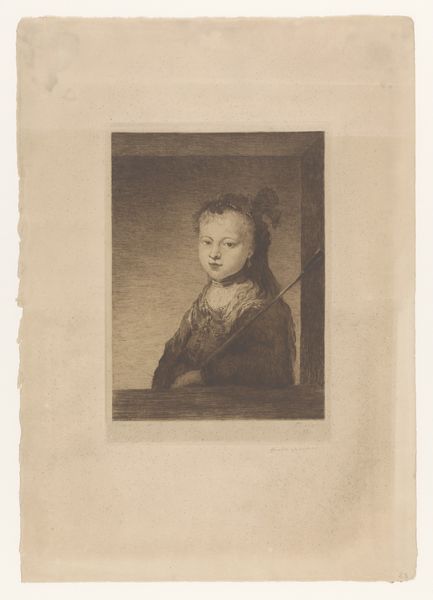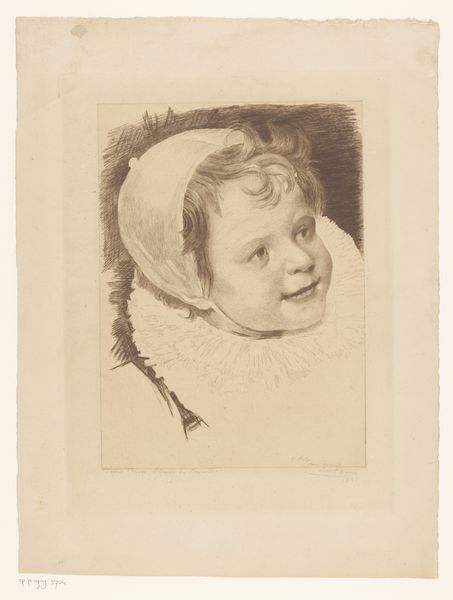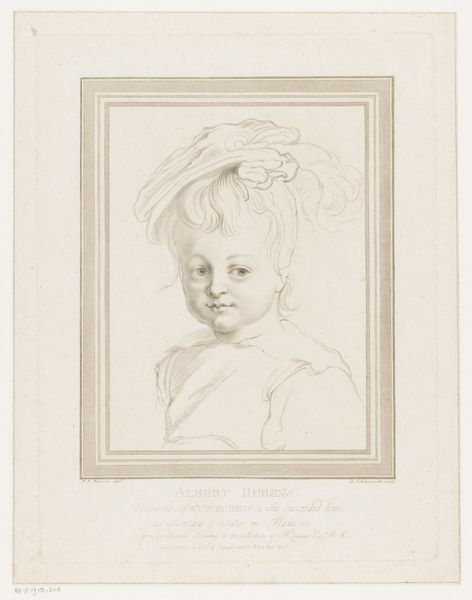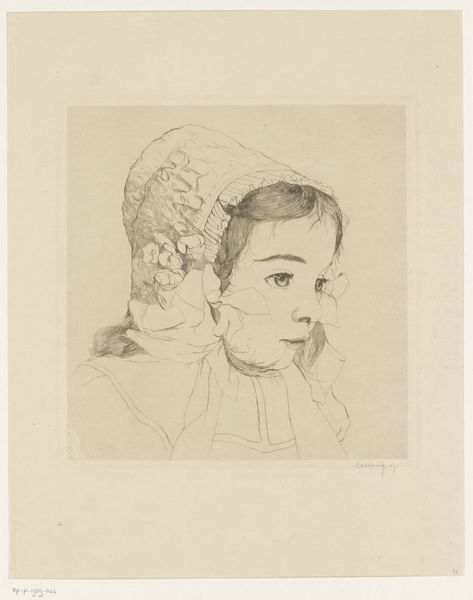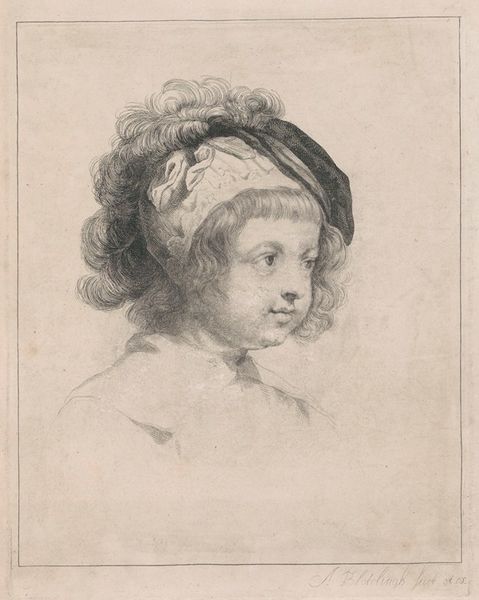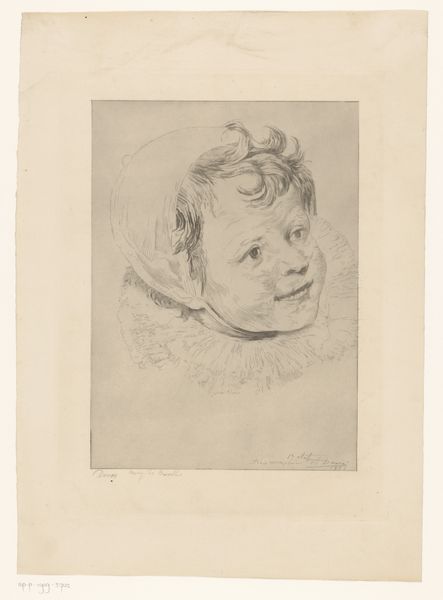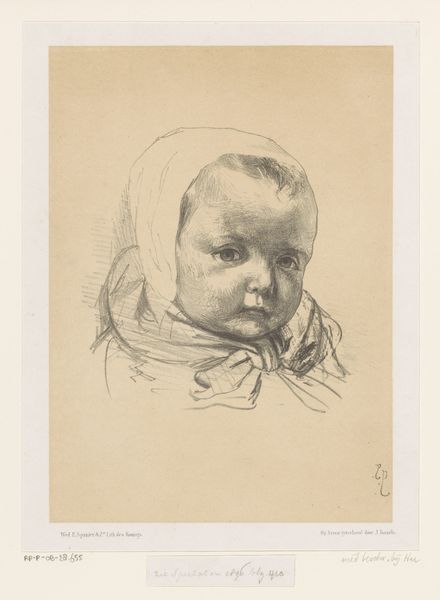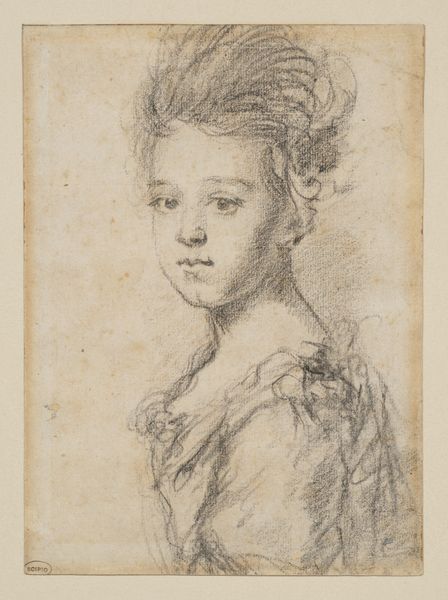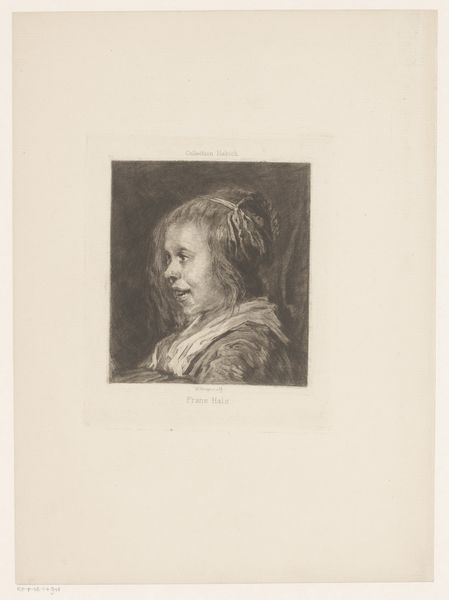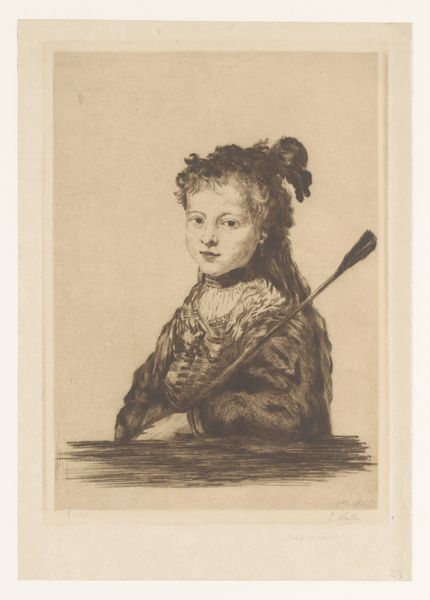
drawing, pencil, charcoal, pastel
#
portrait
#
drawing
#
pencil sketch
#
charcoal drawing
#
pencil drawing
#
pencil
#
portrait drawing
#
charcoal
#
pastel
#
academic-art
Dimensions: height 360 mm, width 268 mm
Copyright: Rijks Museum: Open Domain
Curator: This pencil and charcoal drawing from 1894 at the Rijksmuseum is entitled, "Portret van Jacobus II van Engeland als kind", which translates to "Portrait of James II of England as a child", by Auguste Danse. What strikes you about it initially? Editor: The softness of the shading is really remarkable. Note how the gradations create a sense of depth and volume, particularly around the cheek and the headdress. Curator: Considering its creation in 1894, what resonates for me is the artist's revisiting and re-interpreting a historical figure. James II, infamous for his Catholicism and deposition during the Glorious Revolution, is here rendered as a young, innocent child. Danse subtly encourages us to consider how historical narratives shape our understanding of individuals, overlooking the formative influences of childhood and societal context on shaping character and identity. Editor: Absolutely. There's an inherent tension between the subject's future and the rendering of him here. The focus is purely on form; see the almost classical treatment of light and shadow. But that contrast lends it a certain charge, doesn't it? Curator: I find myself reflecting on childhood, and on its representation and symbolic function, and how depictions of childhood have always been strategic political territory—signifying hope or potential, but also innocence needing protection. And there is indeed a great softness in the rendering, in those rounded shapes. I do think it’s interesting to frame Danse’s image in a longer trajectory, to analyze those artistic depictions in a deeper sociohistorical context. Editor: You’re right. I get so wrapped up in the sheer beauty of the artistic technique sometimes! Curator: Well, it’s beautiful and incredibly crafted. And that aesthetic value opens doors, perhaps, to engage more people, get them thinking critically about how the images they consume inform, reflect, and perpetuate ideas about the past and ourselves. Editor: Well, thanks to your perspective, I'll certainly see it differently now. The nuances are far richer.
Comments
No comments
Be the first to comment and join the conversation on the ultimate creative platform.
